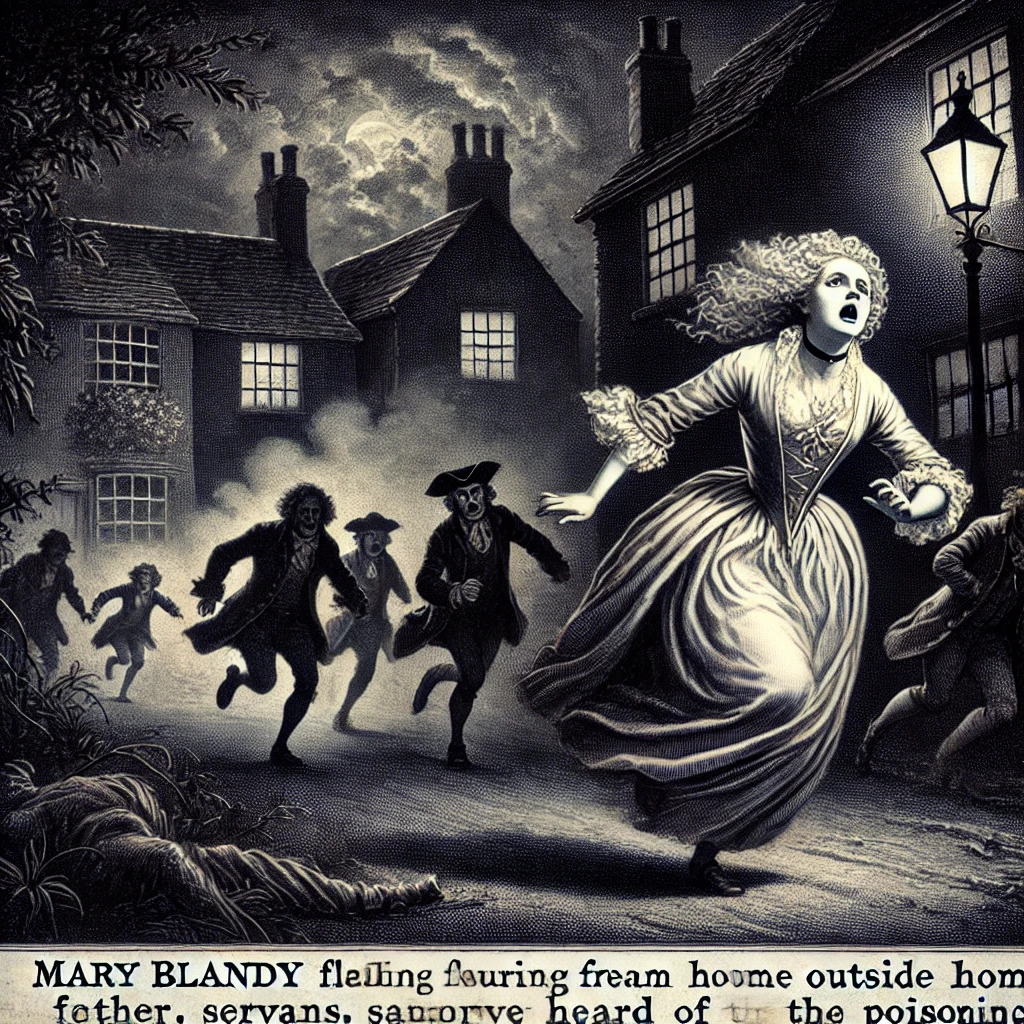On August 14, 1751, Francis Blandy, a wealthy merchant residing outside London, England, fell into a coma and died under mysterious circumstances. His death was later attributed to poisoning, which shocked the local community and led to a dramatic and tragic series of events. Francis Blandy’s sudden and untimely death raised immediate suspicions among his family and servants, who began to piece together the unsettling clues that pointed towards foul play.
Blandy’s death was particularly shocking due to the circumstances surrounding it. The poisoning was believed to be a deliberate act, and the focus of suspicion quickly turned to his daughter, Mary Blandy. The family’s servants had previously noted suspicious behavior from Mary, especially in the context of her relationship with William Cranstoun, a man who was known to have ambitions of gaining a part of the Blandy fortune.

Mary Blandy’s Desperate Actions
Following her father’s death, Mary Blandy made a series of desperate and incriminating decisions. That same night, she offered one of the family’s servants a substantial sum of money to help her flee to France immediately. Her hurried attempt to escape was driven by the fear of being implicated in her father’s death. However, when the servant refused her offer, Mary was left with no choice but to flee on her own.
Mary’s escape was short-lived. Neighbors, having heard rumors of the poisoning, quickly took action and apprehended her before she could leave. The situation escalated as the community’s suspicion grew, and Mary Blandy was arrested and charged with the murder of her father. The case was highly publicized and became a sensation in England, further fueled by the sensational nature of the crime and Mary’s controversial relationship with Cranstoun.

The Trial and Its Aftermath
Mary Blandy’s trial was a dramatic affair, capturing the public’s imagination with its elements of betrayal, forbidden romance, and family tragedy. Evidence presented during the trial included testimonies about Mary’s relationship with William Cranstoun and her apparent motive to gain control of her father’s fortune. The prosecution argued that Mary had poisoned her father to facilitate her escape with Cranstoun, who had been involved in a scandalous affair with her.
In the end, Mary Blandy was found guilty of her father’s murder and was executed by hanging in 1752. The case left a lasting impact on the public consciousness, highlighting the potential for personal vendettas and romantic entanglements to lead to extreme and tragic outcomes. The story of Mary Blandy has been remembered as a cautionary tale about the dangers of unchecked ambition and familial conflict.

The events of August 14, 1751, and the subsequent trial of Mary Blandy have remained a poignant chapter in British criminal history. The case underscores the complexities of human motives and the often tragic consequences of personal disputes. Mary Blandy’s story serves as a powerful reminder of the impact of betrayal and the lengths to which individuals might go in pursuit of their desires.
